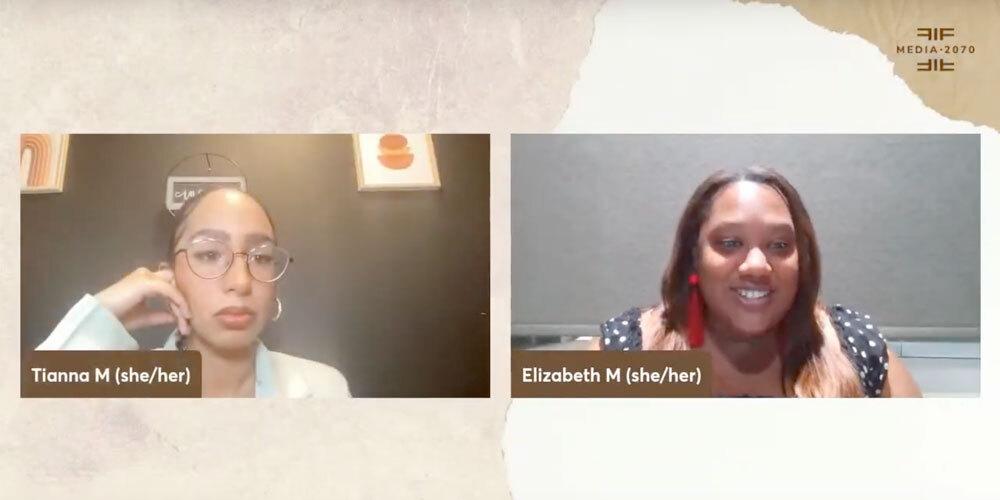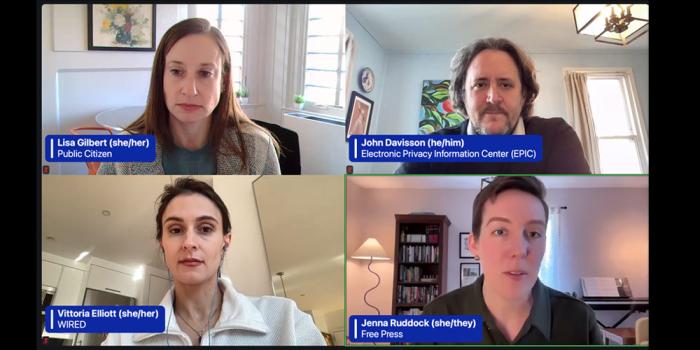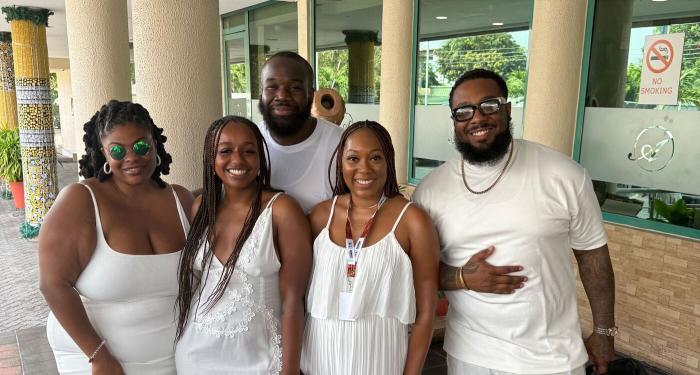Powerful Town Hall Spotlights Media 2070's Award-Winning Documentary

Black in the Newsroom is an award-winning documentary that focuses on the story of journalist Elizabeth Montgomery — and on the broader story of the media as a system.
Over the last year, the Media 2070 team traveled across the country screening Black in the Newsroom for journalists, community members, activists, scholars and many others who care about media and racial justice. The film explores Montgomery’s experiences with systemic racism as a reporter for The Arizona Republic, where her pay was so low that she was forced to choose between paying her rent and buying groceries. Meanwhile, a white colleague in a similar position was paid thousands of dollars more per year, an unjust dynamic that a NewsGuild study found was common across Gannett newsrooms.
As a way to celebrate the great success of Black in the Newsroom — which won best documentary short at the Detroit Black Film Festival and the Peachtree Village International Film Festival — we recently held a virtual national town hall, gathering all the film's supporters to build solidarity for next steps.
Celebrating the film, honoring what’s next
We heard from Montgomery about her life since the period chronicled in the documentary, watched unreleased outtakes, connected with like minds and so much more.
Tianna Mañón of Mañón Media Management welcomed us into the space, grounding us in our part of our purpose for coming together.
Collette Watson, who directed the project and also serves as Free Press’ vice president of cultural strategy, showed love to the people who made the film possible — from the cast, crew and sponsors of the film to those who are part of Media 2070’s ever-growing consortium. Watson showed never-before-released footage from the film, including scenes that detailed Montgomery’s time as a journalist in a newsroom in Wilmington, North Carolina.
Mañón conducted a brief interview with Montgomery, asking questions such as:
- What have you been up to lately?
- What was the healing process like and how did you prioritize self-care?
- What advice would you give newsroom leaders to help them properly support the journalists of color working in their newsrooms right now?
Montgomery’s continued transparency in this process has been central to the film’s success. Her responses to the questions were an inspiration to all of us in attendance. Hear more from Montgomery by watching the replay of our national town hall.
During the gathering, I spoke on the importance of care in general and specifically as an antidote to the harm seen within the media system. I shared Media 2070’s pledge to care with attendees, urging those who hadn’t already signed to do so. This pledge, first issued in 2021, calls for newsrooms to do better — to stop parroting police narratives about Black people, and to trust and support Black journalists. We need newsrooms to do this for the future of our communities and the future of journalism alike.
Already more than 80 news organizations have signed on, promising to care for Black journalists and communities. Among the signers are CUNY’s Craig Newmark Graduate School of Journalism, Scalawag Magazine, the Tucson Sentinel and WURD Radio. (If your newsroom hasn’t already done so, you can sign here.)
Dreaming up a future media that’s free of anti-Blackness
After this, Free Press Reparative Journalism Program Manager Diamond Hardiman posed the question, “What role does journalism play in healing?” Town-hall attendees responded with beautiful visions of what the field of journalism could look like with healing infused. Hardiman discussed her reparative-journalism work and invited us into a conversation on what care, repair and accountability could be.
To close out our program, we had time for questions and answers. Guests lifted up questions like:
- How can journalists who are already so burned out prioritize easy ways to engage in self-care?
- If you’re already shut down about choosing stories to cover, how can you make it clear to your leadership that supporting you financially matters?
- In a lot of newsrooms, Black reporters end up doing stories about race or police-involved shootings. Can you talk about how exhausting that is for many of us — especially when there’s nobody else to do these stories?
To hear our answers to these questions and more, watch the replay of our national town hall. And check out our award-winning 15-minute documentary Black in the Newsroom, which is now streaming on YouTube.




